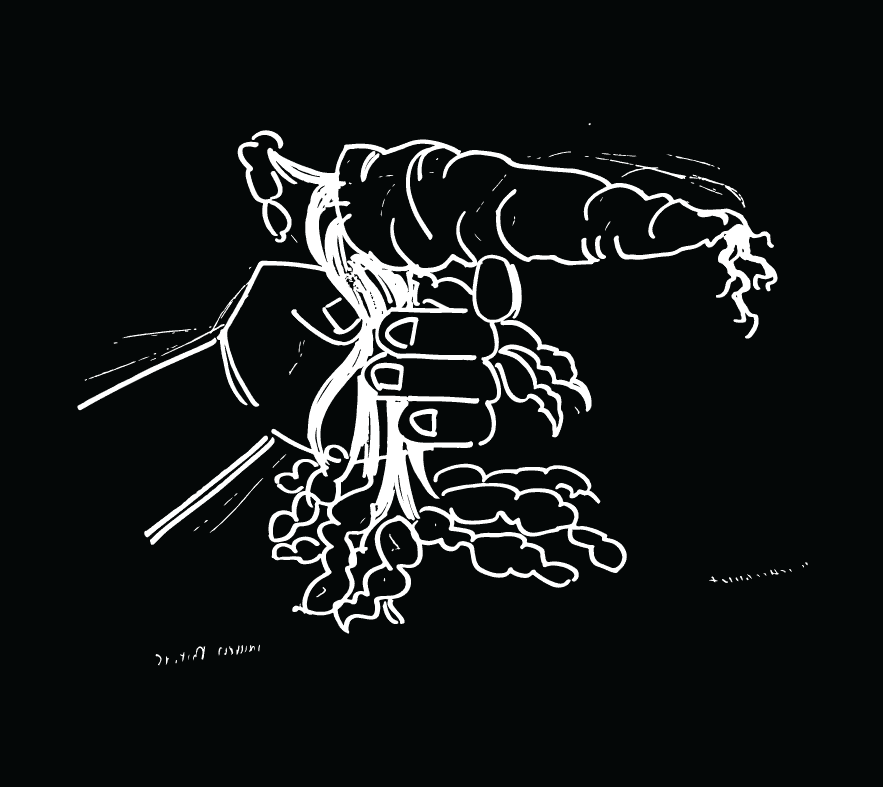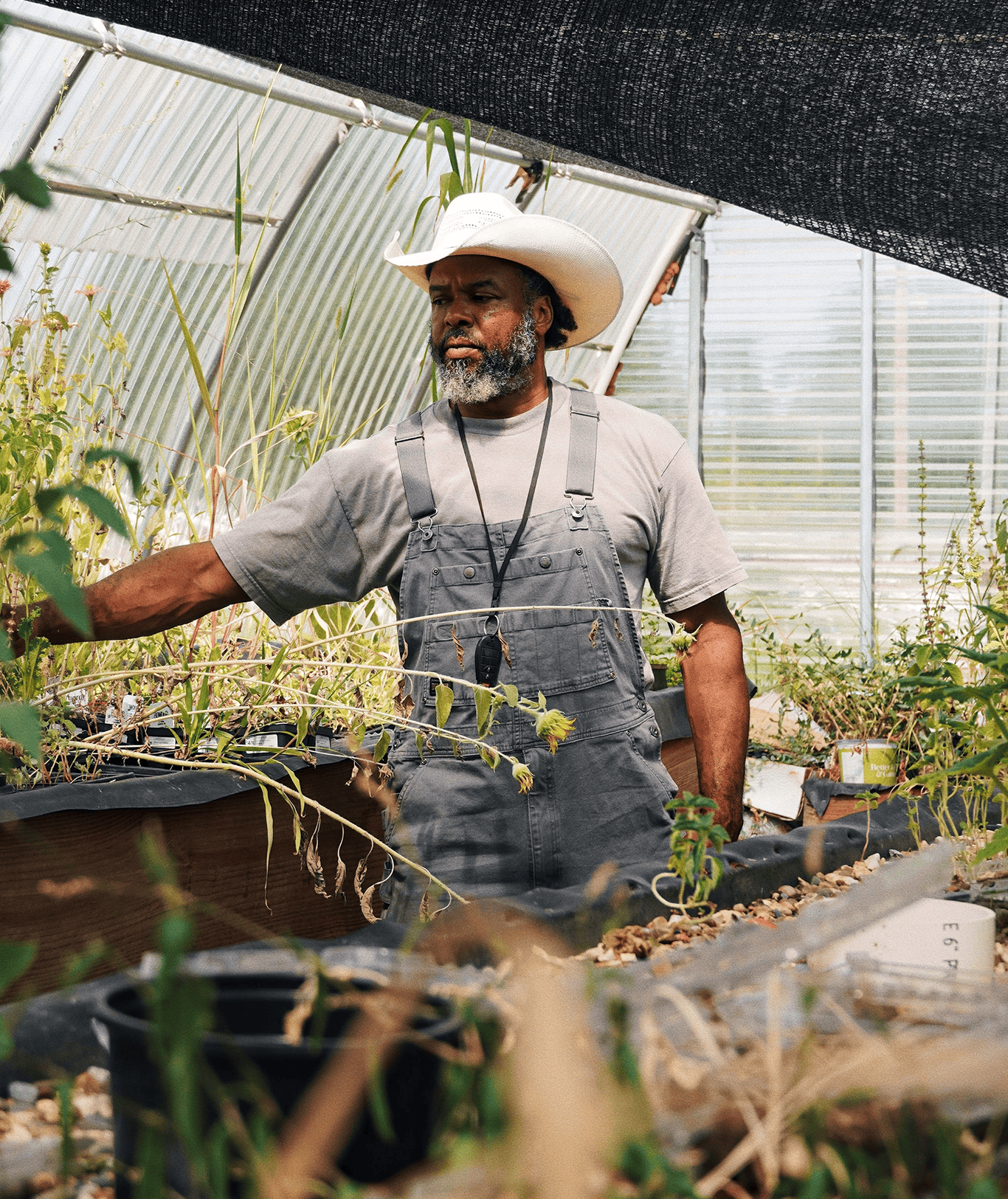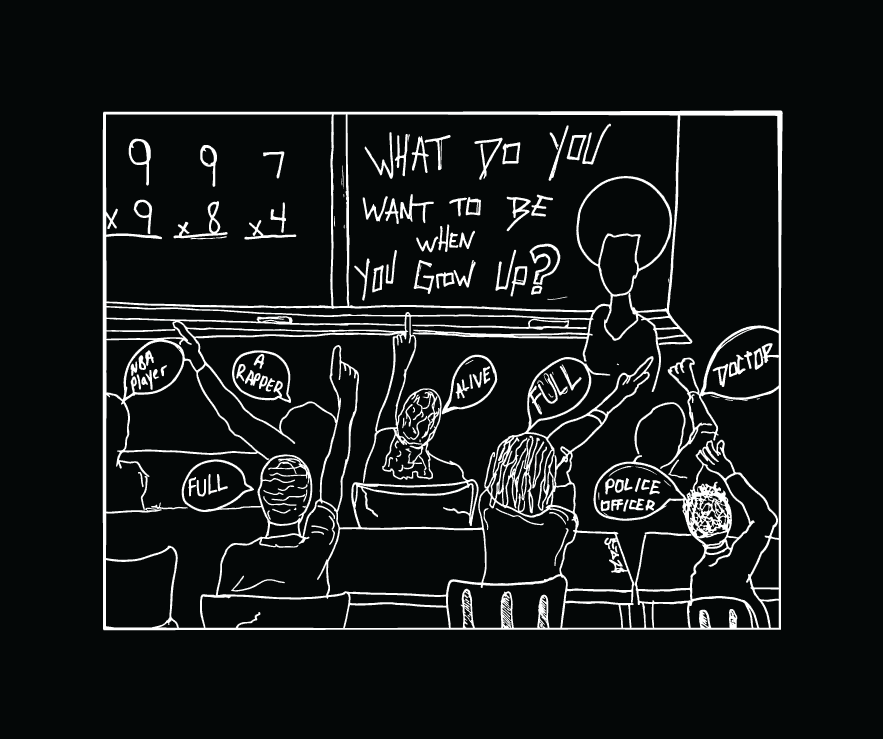A System Where Food Is a Weapon: America’s Battle for Control Over Hunger

Introduction
As the United States government continues to chase the title of the world’s wealthiest economy, nearly 47.4 million Americans couldn’t afford to eat in 2023 — a staggering 40% increase from the 33.8 million people who were food insecure just two years earlier, in 2021.C1
The COVID-19 pandemic forced the federal government to implement historic anti-poverty measures — most notably the expanded Child Tax Credit under the American Rescue Plan Act of 2021.C2 These interventions brought the child poverty rate to a record low of 5.2%.C3 Free school lunches for all students and enhanced Supplemental Nutrition Assistance Program (SNAP) benefits brought food insecurity among households with children to a two-decade low. In the devastation of a global pandemic, the U.S. experienced a brief win: Overall food insecurity dropped to 10.4% in 2021.C4


The Dead System Is Against the Living System

Article Citations
|
C1 |
Matthew Rabbitt et al., “Household Food Security in the United States in 2023” (U.S. Department of Agriculture: Economic Research Service, September 2024), https://www.ers.usda.gov/webdocs/publications/109896/err-337.pdf?v=9862. |
|
C2 |
Saied Toossi and Jordan Jones, “The Food and Nutrition Assistance Landscape: Fiscal Year 2022 Annual Report” (U.S. Department of Agriculture: Economic Research Service, June 2023), https://www.ers.usda.gov/webdocs/publications/106763/eib-255.pdf?v=6823.9. |
|
C3 |
John Creamer et al., “Poverty in the United States: 2021 Current Population Reports” (U.S. Department of Commerce: U.S. Census Bureau, September 2022), https://www.census.gov/content/dam/Census/library/publications/2022/demo/p60-277.pdf. |
|
C4 |
Alisha Coleman-Jensen et al., “Household Food Security in the United States in 2021,” vol. 309 (U.S. Department of Agriculture: Economic Research Service, September 2022), https://doi.org/10.2139/ssrn.2504067. |
|
C5 |
The Biden-Harris Administration, “White House National Strategy on Hunger, Nutrition, and Health” (The White House, September 2022), https://www.whitehouse.gov/wp-content/uploads/2022/09/White-House-National-Strategy-on-Hunger-Nutrition-and-Health-FINAL.pdf |
|
C6 |
Matthew Rabbitt et al., “Household Food Security in the United States in 2023” (U.S. Department of Agriculture: Economic Research Service, September 2024), https://www.ers.usda.gov/webdocs/publications/109896/err-337.pdf?v=9862. |
|
C7 |
Emily Shrider, “Poverty in the United States: 2023 Current Population Reports” (U.S. Department of Commerce: U.S. Census Bureau, September 2024), https://www2.census.gov/library/publications/2024/demo/p60-283.pdf. |
|
C8 |
EPA, “2019 Wasted Food Report” (U.S. Environmental Protection Agency, April 2023), https://www.epa.gov/system/files/documents/2023-03/2019%20Wasted%20Food%20Report_508_opt_ec.pdf. |
|
C9 |
ReFED, “The Food Waste Monitor,” insights-engine.refed.org, n.d., https://insights-engine.refed.org/food-waste-monitor?view=overview&year=2022. |
|
C10 |
National Agricultural Statistics Service, “Farms and Land in Farms 2023 Summary” (United States Department of Agriculture: National Agricultural Statistics Service, February 2024), https://usda.library.cornell.edu/concern/publications/5712m6524?locale=en. |
|
C11 |
“Missouri Department of Agriculture Celebrates National Agriculture Week” (Missouri Department of Agriculture, March 2024), https://agriculture.mo.gov/news/newsitem/uuid/02d0267d-1773-46d4-b6b3-37590a4d6764. |
|
C12 |
Monica Hake et al., “Map the Meal Gap 2023: An Analysis of County and Congressional District Food Insecurity and County Food Cost in the United States in 2021” (Feeding America, 2023), https://www.feedingamerica.org/sites/default/files/2023-05/Map%20the%20Meal%20Gap%202023.pdf. |
|
C13 |
Monica Hake et al., “Map the Meal Gap 2023: An Analysis of County and Congressional District Food Insecurity and County Food Cost in the United States in 2021” (Feeding America, 2023), https://map.feedingamerica.org/county/2022/overall/missouri/organization/st-louis-area-foodbank. |
|
C14 |
U.S. Census Bureau, “Estimated Percent of People of All Ages in Poverty for St. Louis City, MO [PPAAMO29510A156NCEN].” Retrieved from FRED, Federal Reserve Bank of St. Louis. https://fred.stlouisfed.org/series/PPAAMO29510A156NCEN. |
|
C15 |
U.S. Census Bureau, “Estimated Percent of People Age 0-17 in Poverty for St. Louis City, MO [PPU18MO29510A156NCEN].” Retrieved from FRED, Federal Reserve Bank of St. Louis. https://fred.stlouisfed.org/series/PPU18MO29510A156NCEN. |
|
C16 |
Monica Hake et al., “Map the Meal Gap 2023: An Analysis of County and Congressional District Food Insecurity and County Food Cost in the United States in 2021” (Feeding America, 2023), https://map.feedingamerica.org/county/2022/overall/missouri. |
|
C17 |
Washington University in St. Louis and Saint Louis University, “For the Sake of All: A Report on the Health and Well-Being of African Americans in St. Louis and Why It Matters for Everyone,” Healthequityworks.wustl.edu (Washington University: Brown School, May 30, 2014), https://forthesakeofall.wordpress.com/wp-content/uploads/2014/05/for-the-sake-of-all-report.pdf. |
|
C18 |
National Center for Health Statistics, “U.S. Small-Area Life Expectancy Estimates Project (USALEEP): Life Expectancy Estimates File for St. Louis, 2010-2015” (Centers for Disease Control and Prevention: National Center for Health Statistics, 2020), https://www.cdc.gov/nchs/nvss/usaleep/usaleep.html. |
|
C19 |
Samuel Emmerich et al., “Obesity and Severe Obesity Prevalence in Adults: United States, August 2021-August 2023 Key Findings Data from the National Health and Nutrition Examination Survey,” September 24, 2024, https://www.cdc.gov/nchs/data/databriefs/db508.pdf. |
|
C20 |
National Center for Health Statistics, “Multiple Cause of Death 2018-2022 on CDC WONDER Online Database Website” (Centers for Disease Control and Prevention: National Center for Health Statistics, April 2024), http://wonder.cdc.gov/mcd.html. |
|
C21 |
Dhruv S Kazi et al., “Forecasting the Economic Burden of Cardiovascular Disease and Stroke in the United States through 2050: A Presidential Advisory from the American Heart Association,” Circulation 150, no. 4 (June 4, 2024), https://doi.org/10.1161/cir.0000000000001258. |
|
C22 |
Missouri Department of Health and Senior Services, “Missouri State Health Assessment 2024,” Missouri Department of Health and Senior Services, April 25, 2024, https://health.mo.gov/accreditation/pdf/state-health-assessment.pdf. |
|
C23 |
Economic Research Service, “The Number of U.S. Farms Continues Slow Decline,” Ers.usda.gov (U.S. Department of Agriculture: Economic Research Service, September 2024), https://www.ers.usda.gov/data-products/ag-and-food-statistics-charting-the-essentials/farming-and-farm-income/. |
|
C24 |
Economic Research Service, “Feed Grains Sector at a Glance,” Ers.usda.gov (U.S. Department of Agriculture: Economic Research Service, 2023), https://www.ers.usda.gov/topics/crops/corn-and-other-feed-grains/feed-grains-sector-at-a-glance/. |
|
C25 |
Missouri Partnership, “Missouri’s Food and Agriculture Industry,” Missouripartnership.com, May 2024, https://www.missouripartnership.com/wp-content/uploads/2024/05/Missouri-Food-Ag-Industry-Summary-1.pdf. |
|
C26 |
Missouri Department of Agriculture , “2021 Economic Contribution Study of Missouri Agriculture and Forestry ” (Missouri Department of Agriculture : Missouri Agriculture and Small Business Development Authority, November 2021). |
|
C27 |
Missouri Coalition for the Environment, “2024 St. Louis Regional Foodshed Study,” Moenvironment.org (Missouri Coalition for the Environment, 2024), https://moenvironment.org/wp-content/uploads/sites/370/2024/11/MCEStLouisFoodshedReport2024.pdf. |